Police are always an interlinked part of any community.
It’s not surprising that any given language usually has a fairly wide variety of slang terms by which to refer to the police.
This is just as true in Australia as it is anywhere else.
There are plenty of local, colloquial terms for the police all across Australia.
Today, we’re going to look at some of the most widely used of those terms.
Let’s get started.
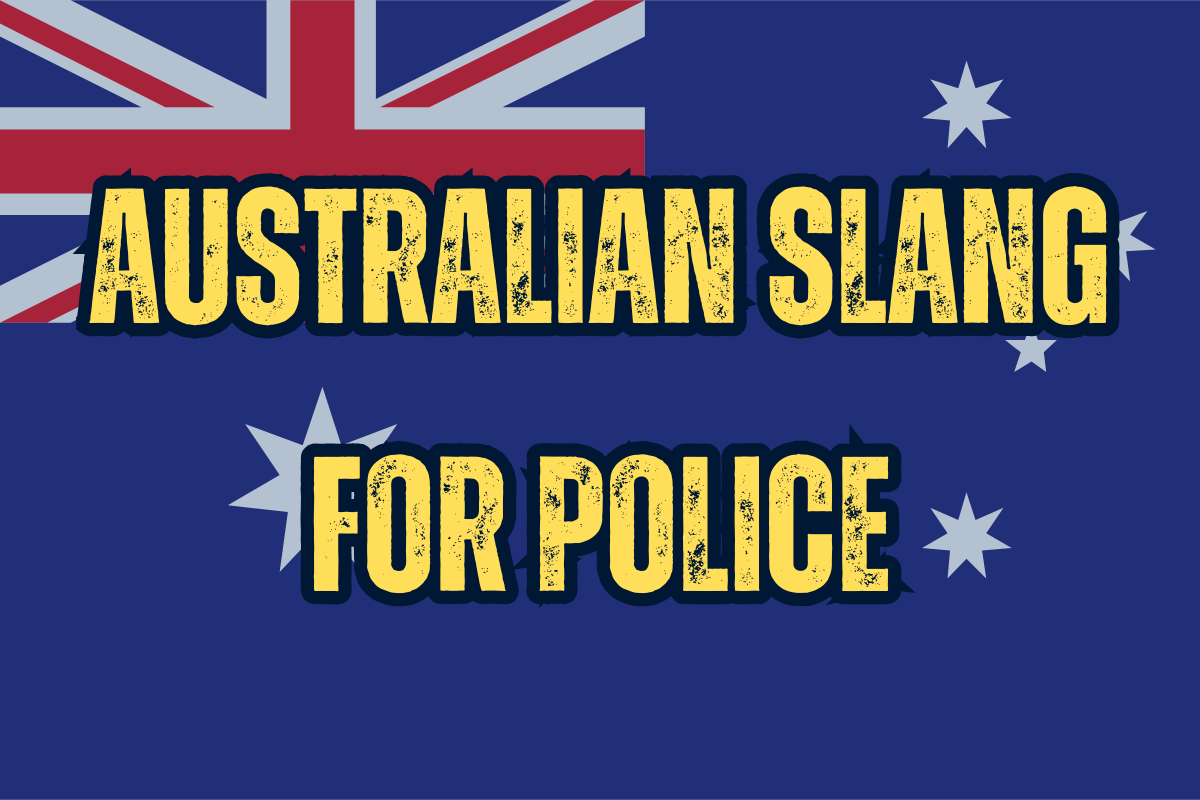
Australian Slang For Police
Blue Heelers
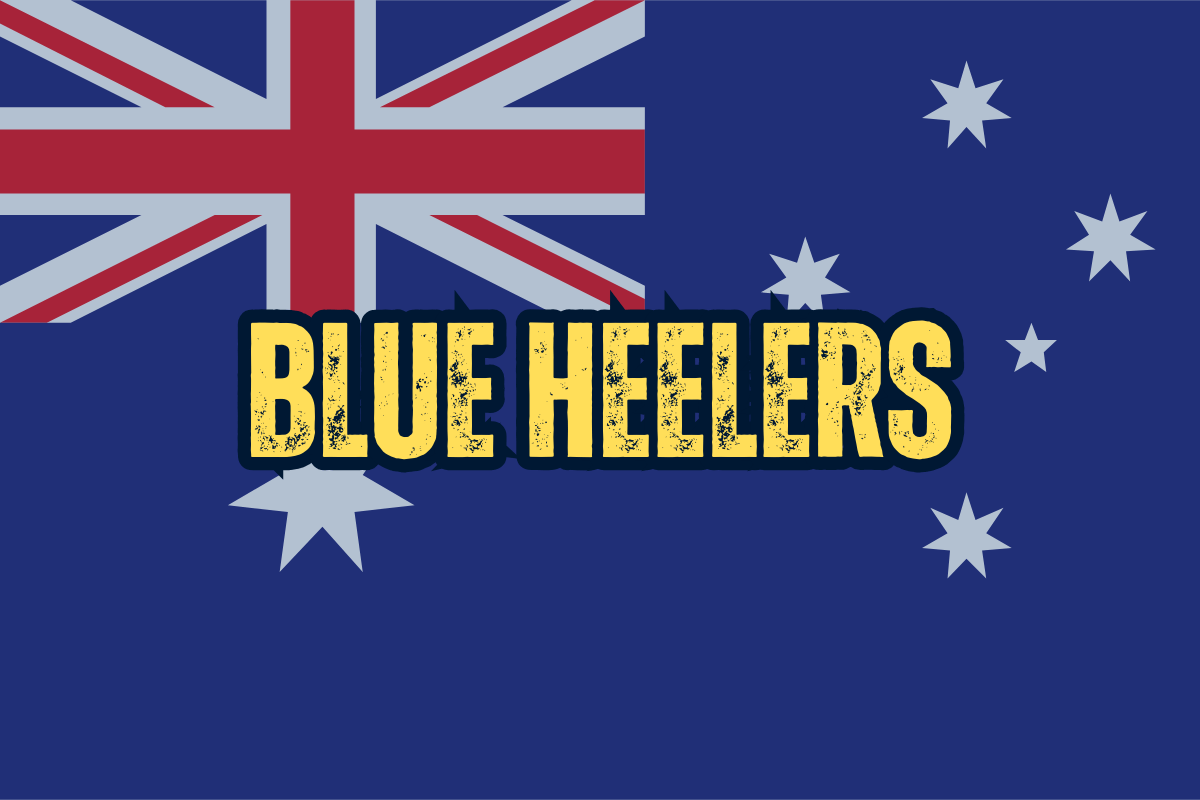
“Blue Heelers” is a well-known Australian slang term for the police, especially in rural areas.
It became even more famous thanks to the long-running Australian TV drama Blue Heelers.
The term originates from the Australian Cattle Dog, commonly called a Blue Heeler.
These dogs are often used by rural police due to their intelligence, agility, and obedience.
The name “heeler” refers to the breed’s natural herding instinct—they nip at the heels of livestock to guide them.
This same obedience and discipline are qualities valued in police officers, which is likely how the term became associated with law enforcement.
“Blue Heelers” has been in use since at least the early 20th century and remains a recognizable, if somewhat old-fashioned, slang term for Australian police.
Examples in sentences:
- “The blue heelers were patrolling the town last night.”
- “Better slow down, mate. The blue heelers are out in force today.”
- “The blue heelers sorted out the pub fight pretty quickly.”
- “He had a run-in with the blue heelers after the footy match.”
- “Call the blue heelers—someone’s trying to break into the shop!”
Cop
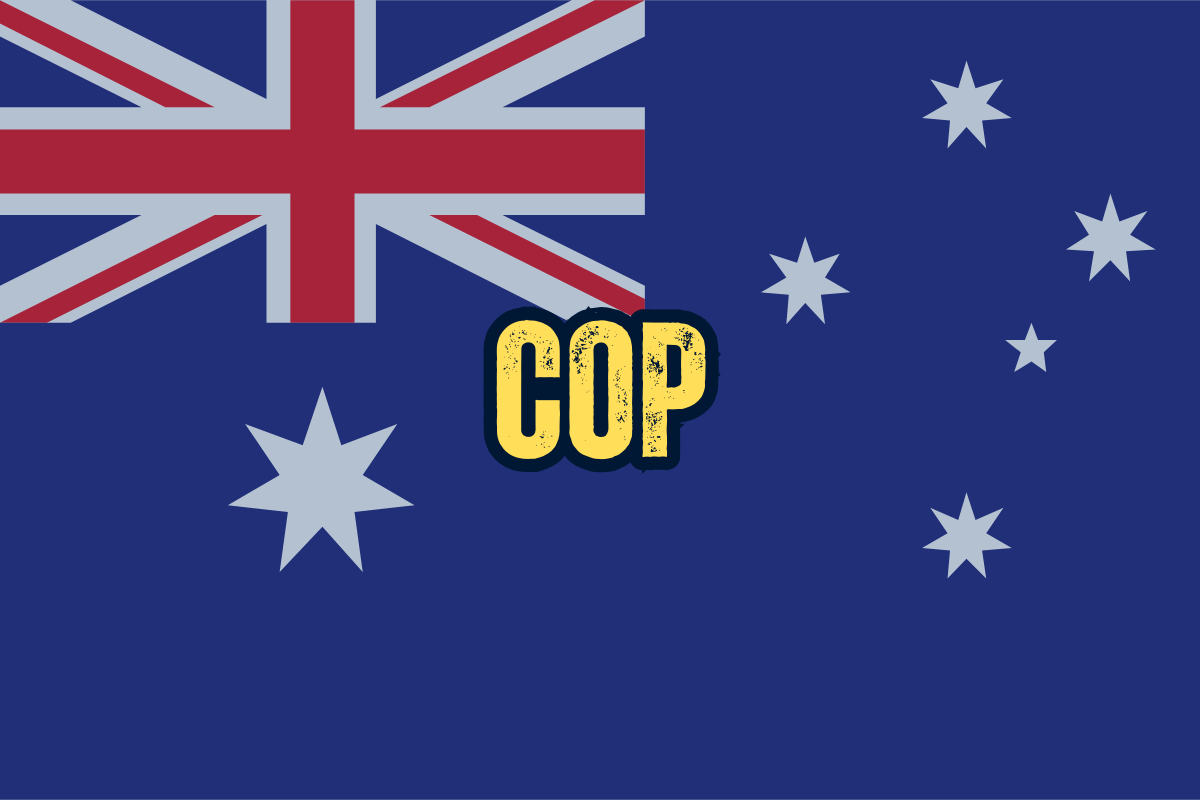
“Cop” is one of the most universally recognized slang terms for police, not just in Australia but around the world.
While it is often associated with American English, the term actually has British origins and has been used in Australia for generations.
The word comes from an old slang term meaning “to capture” or “to seize,” derived from the Old French caper.
This aligns with the role of police officers as those who catch criminals.
Given Australia’s history as a British penal colony, the term likely made its way there very early on.
Today, “cop” is so widespread that it arguably overshadows many other slang terms for police in Australia.
It’s used in casual speech, media, and even by police officers themselves.
Examples in sentences:
- “Watch out, there’s a cop around the corner.”
- “The cops shut down the party last night.”
- “He got caught speeding by an undercover cop.”
- “My uncle used to be a cop back in the day.”
- “The cop gave him a warning instead of a fine.”
Cop Shop
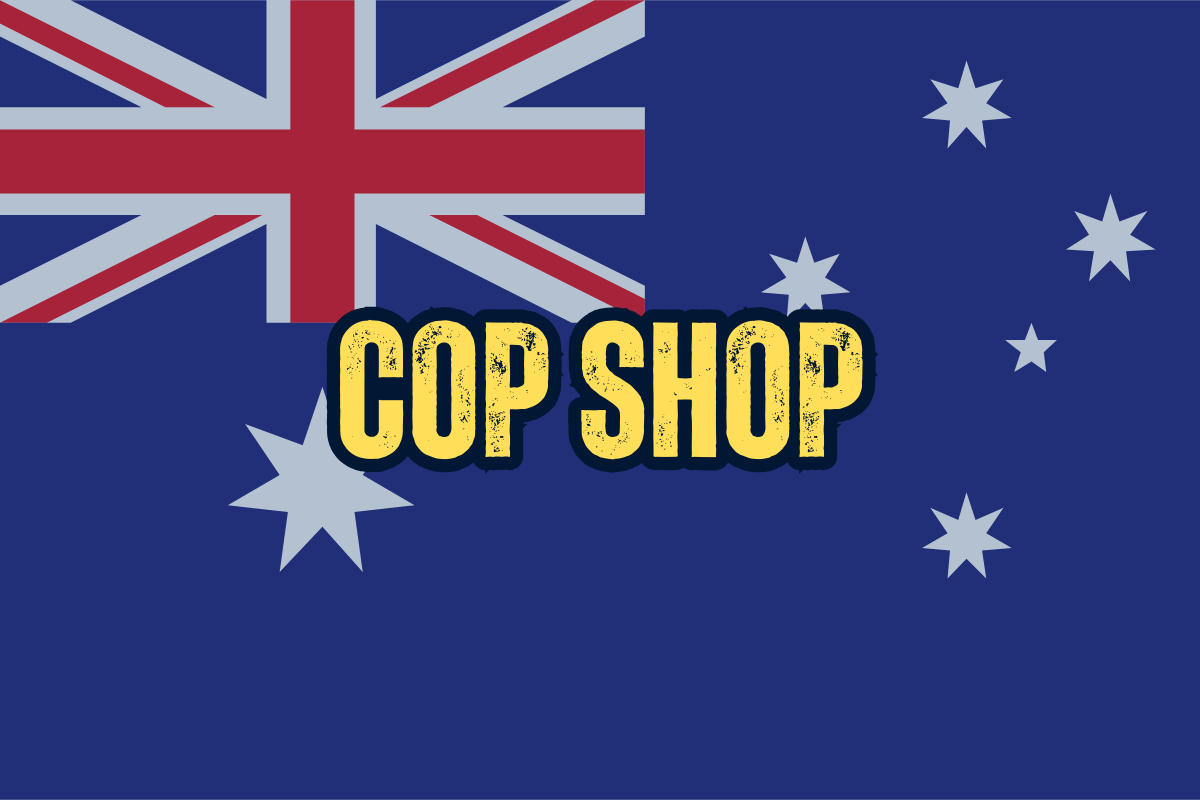
“Cop shop” is a distinctly Australian slang term used to refer to a police station.
While “cop” itself is widely understood, this particular phrase is much less common outside of Australia.
The origins of “cop shop” are unclear, but it likely emerged sometime in the 20th century as a natural evolution of slang.
The phrase follows a common pattern in Australian English, where everyday locations are given informal, friendly names—much like “servo” for service station or “bottle-o” for bottle shop.
Although it’s a casual term, “cop shop” is still widely understood and occasionally used in everyday conversation and media.
Examples in sentences:
- “He had to go down to the cop shop to give a statement.”
- “The cop shop is just around the corner from the pub.”
- “She spent the night in the cop shop after the festival.”
- “He walked into the cop shop to report the stolen bike.”
- “They built a new cop shop in the city centre.”
Divvy Van
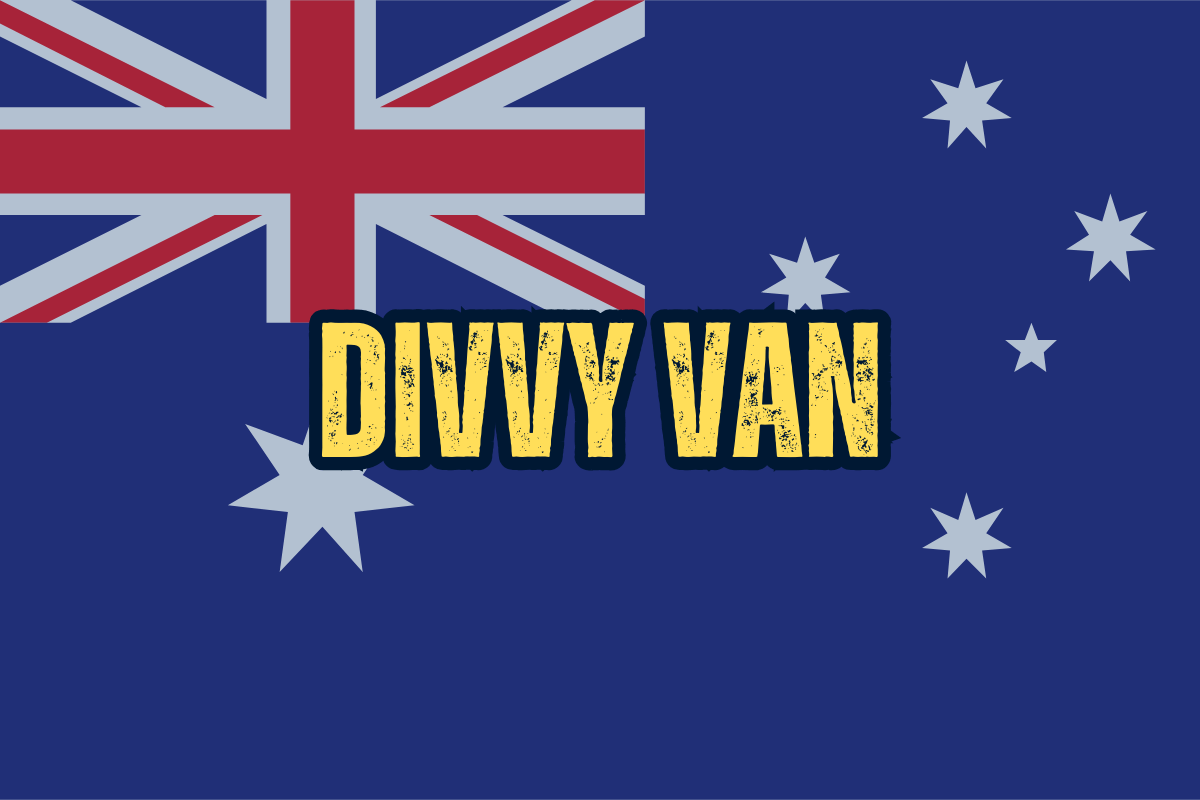
“Divvy van” is a uniquely Australian slang term used to describe a police van—specifically, the kind used to transport detainees.
The term is most commonly used in Victoria and Western Australia.
The “divvy” in “divvy van” comes from “divisional van,” which is the official police term for these vehicles.
However, in Australian slang, “divvy” can also mean an idiot, and while the two meanings are unrelated, some people enjoy the double entendre.
The term has been in use since at least the 1970s and remains a well-known part of Australian police slang today.
Examples in sentences:
- “The divvy van rocked up and took him away.”
- “If you keep causing trouble, you’ll end up in the divvy van.”
- “They had three blokes packed into the back of the divvy van.”
- “We saw a divvy van parked outside the pub last night.”
- “He got a free ride home in the divvy van after the footy match.”
Double Bubble
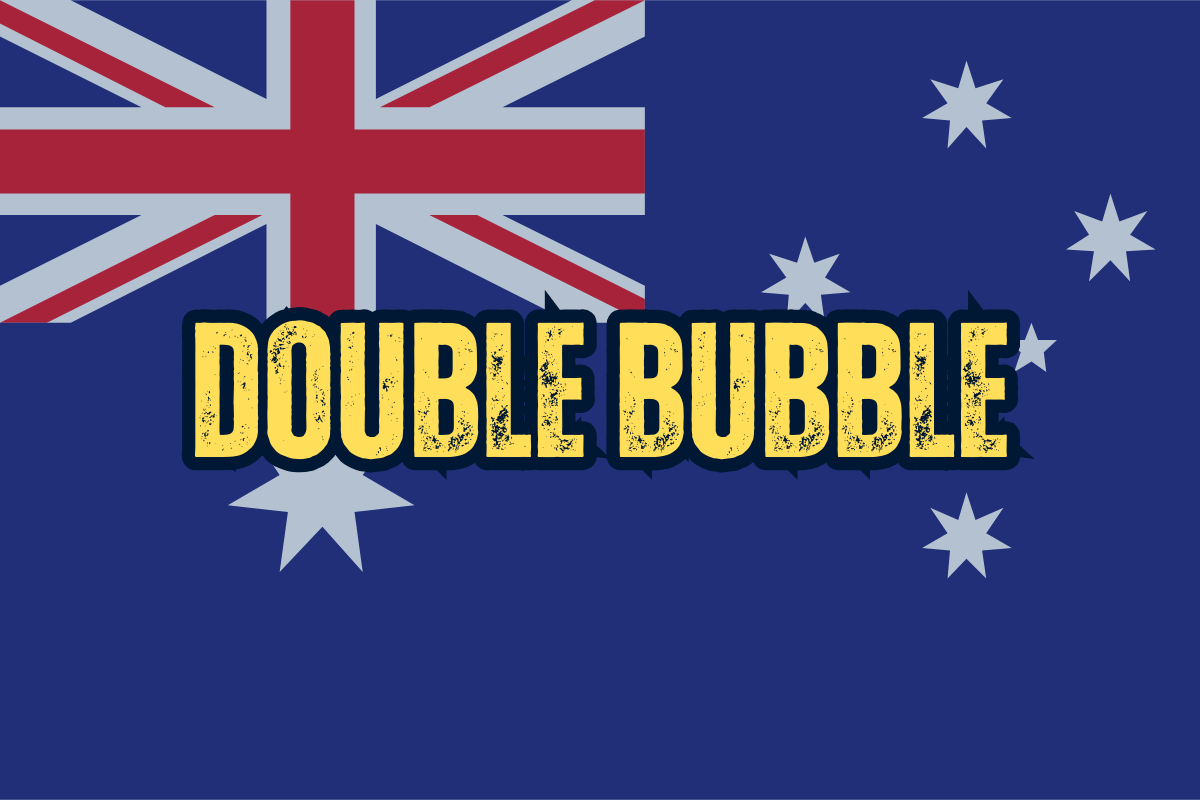
“Double bubble” is a colloquial term used in Australia to describe highway patrol police vehicles, specifically because of the large rotating blue lights on these vehicles.
While most police cars have rotating lights, the highway patrol vehicles are equipped with larger, more prominent blue lights—often double blue lights.
The term likely arose because of the “double” nature of the lights, though exactly when it came into use is not clear.
It’s a natural term that reflects the obvious visual characteristic of the vehicle, but it remains largely untraced to a specific time period.
Although most police vehicles use blue and red lights, highway patrol cars stand out with their all-blue, rotating lights, which led to the popularization of this term.
Examples in sentences:
- “The double bubble lights came on as the highway patrol pulled us over.”
- “We saw the double bubble chasing down a speeding car on the freeway.”
- “I had to slow down when I saw the double bubble in my rearview mirror.”
- “They were caught by the double bubble, speeding through the tunnel.”
- “You can always spot the double bubble from miles away on the highway.”
Feds
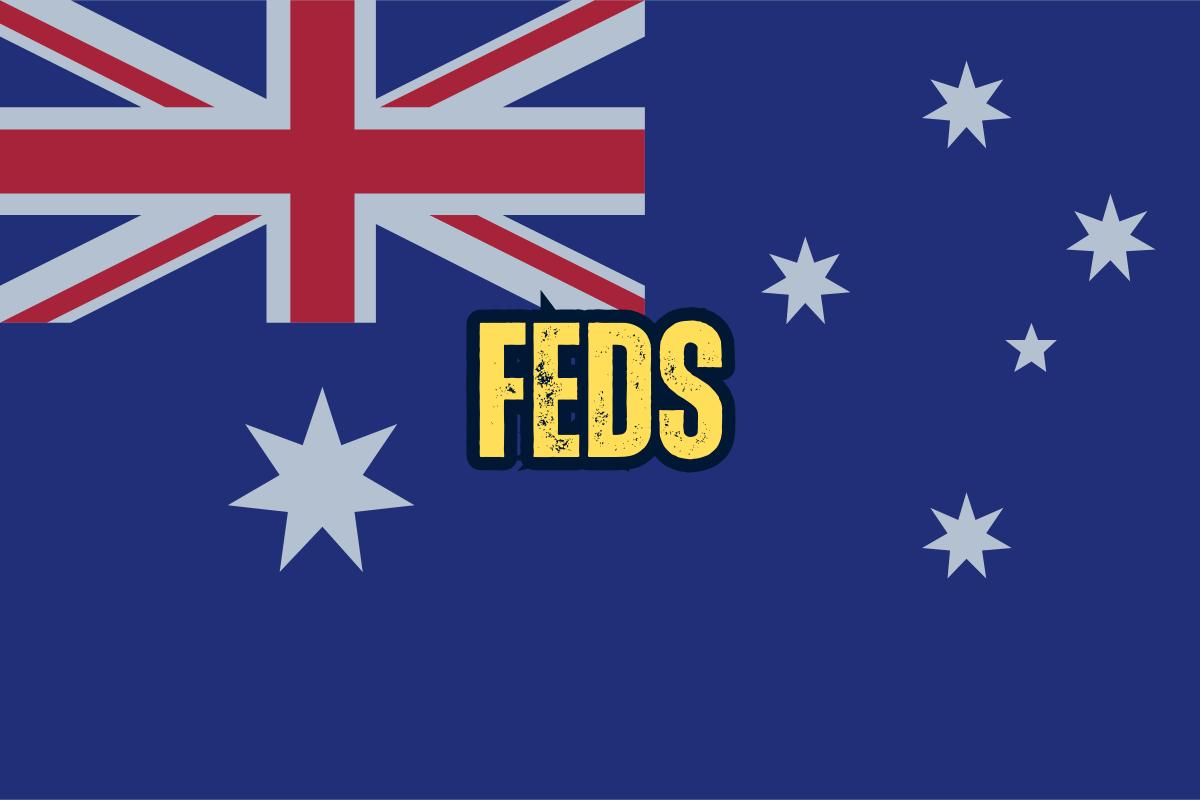
“Feds” is a widely used slang term for the Australian Federal Police (AFP), the national law enforcement agency responsible for enforcing federal laws in Australia.
It’s a shortening of “federal police” and is commonly used throughout the country, just as “FBI” is used in the United States.
While the term may seem familiar from American slang, it has firmly established itself as an Australian term over time.
The “feds” term likely gained popularity in Australia during the late 19th to early 20th centuries as the federal police force took shape.
The AFP’s role, distinct from local or state police forces, led to the widespread use of this term to refer to the national police force.
Though “feds” is often associated with high-level law enforcement agencies like the FBI, in Australia, it specifically refers to the Australian Federal Police, who handle matters of national security, immigration, and federal crime.
Examples in sentences:
- “The feds are investigating a major drug trafficking ring in Sydney.”
- “I heard the feds are raiding the house down the street.”
- “You don’t want to get caught by the feds—they don’t mess around.”
- “The feds have been tracking him for years.”
- “That’s classified, mate. The feds are involved.”
Jacks
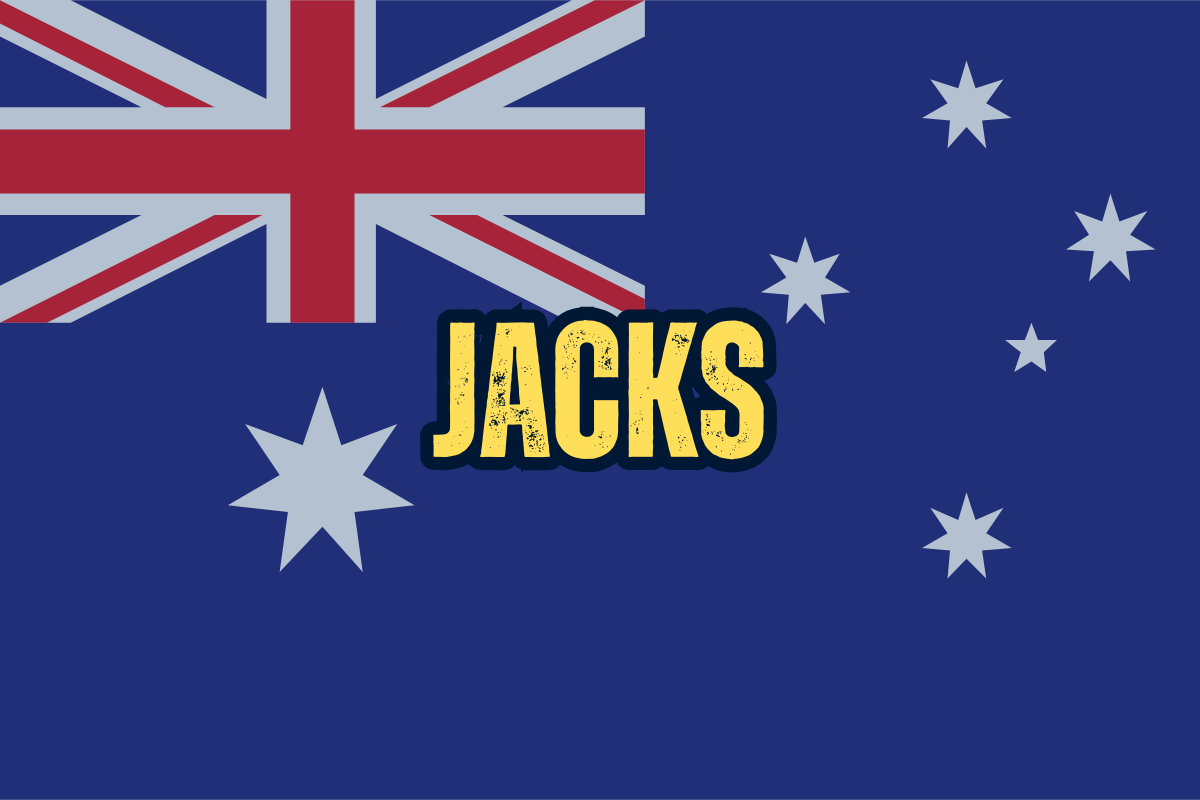
“Jacks” is a common slang term in Australia used to refer to police officers.
The term is used both to describe individual officers and the police as a whole.
Additionally, “jack” can also refer to someone who informs on others or betrays them to the police, often called a “grass” or “informer” in other slang contexts.
The origin of “jacks” comes from the “jackboots” worn by police officers, particularly in the 19th century.
The term was likely popularized in England, particularly in Liverpool, before making its way to Australia. It’s still used in some parts of the UK today.
Although “jacks” has a more neutral meaning of referring to the police, it can also carry a negative connotation when referring to informers, implying a sense of betrayal or mistrust.
Examples in sentences:
- “The jacks are on their way to break up the fight.”
- “You can’t trust him; he’s a jack, always working with the police.”
- “Don’t get caught by the jacks, mate. They’re everywhere.”
- “I heard the jacks are looking for someone who matches your description.”
- “She’s been spilling the beans to the jacks, telling them everything.”
Traps
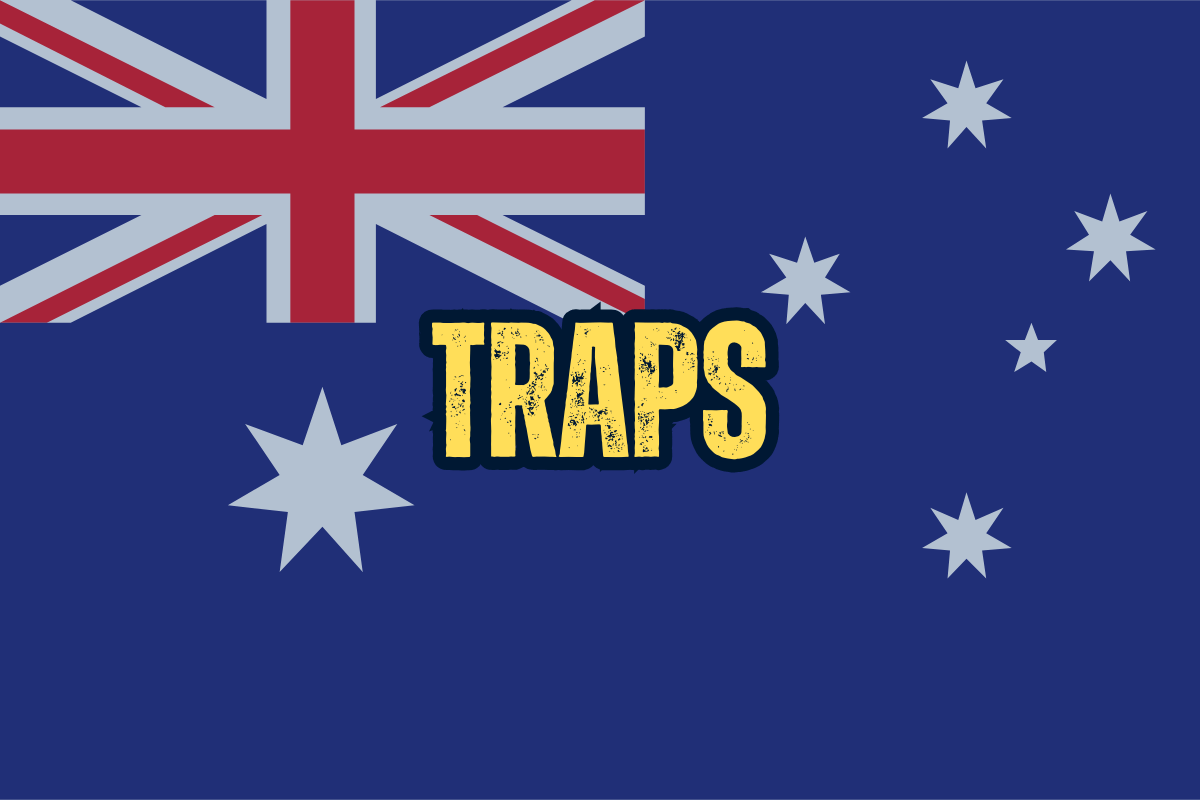
“Traps” is a somewhat old-school slang term for police in Australia.
While it’s not as commonly heard today, it remains part of the country’s linguistic history and is still understood by many.
The exact origin of “traps” is uncertain, but there are a few theories.
One possibility is that it comes from the concept of a “honey trap,” referring to police setting up stings to catch people committing crimes.
Another theory suggests it originated from police entering public houses to catch people drinking illegally on the Sabbath.
More likely, however, is that “traps” was a reference to the New South Wales mounted police in the 19th century.
These officers were tasked with capturing escaped convicts and criminals, effectively “trapping” them.
While “traps” has largely fallen out of everyday use, it still appears in historical and cultural references to Australian policing.
Examples in sentences:
- “Watch out, the traps are patrolling this area tonight.”
- “Back in the day, the traps would round up anyone breaking curfew.”
- “He tried to outrun the traps, but they caught him down by the creek.”
- “They used to send in the traps to catch drinkers at the pub on Sundays.”
- “The old-timers still call the police ‘traps’—must be a generational thing.”
Walloper
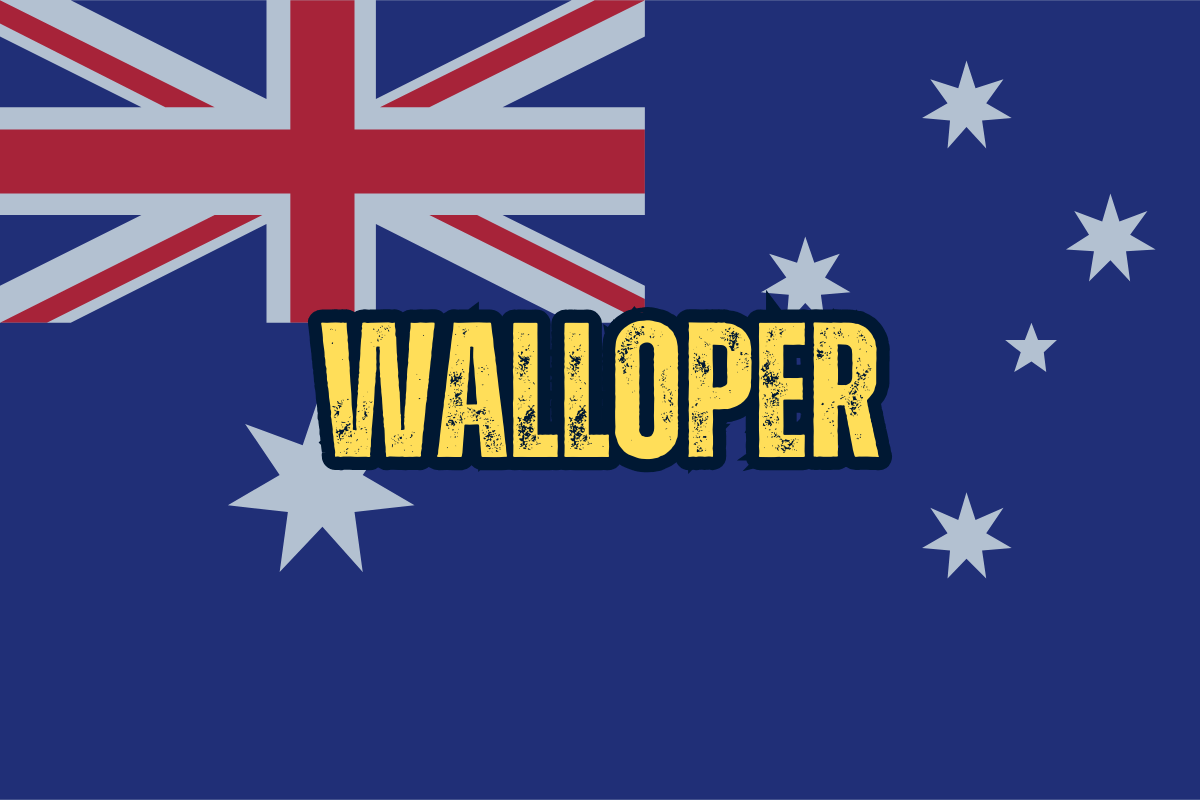
“Walloper” is a uniquely Australian slang term for the police.
While it has declined in use over time, it remains a part of Australia’s rich slang history and is still occasionally heard today.
The term dates back to the 19th century, when police officers patrolled their beats carrying truncheons.
The word “wallop” means to hit something with great force, and early Australian police were notorious for using their truncheons a little too enthusiastically.
As a result, “walloper” became a slang term for officers who were known to deliver a good walloping when enforcing the law.
While modern policing has long since moved on from such heavy-handed tactics, “walloper” remains a quirky and distinctly Australian slang term for a cop.
Examples in sentences:
- “The wallopers were out in force at the protest today.”
- “Back in the day, the wallopers didn’t hesitate to use their truncheons.”
- “Better slow down, mate, there’s a walloper up ahead.”
- “He tried to run, but the wallopers caught up with him in no time.”
- “My granddad always called the police ‘wallopers’—old habits die hard.”
Water Rat
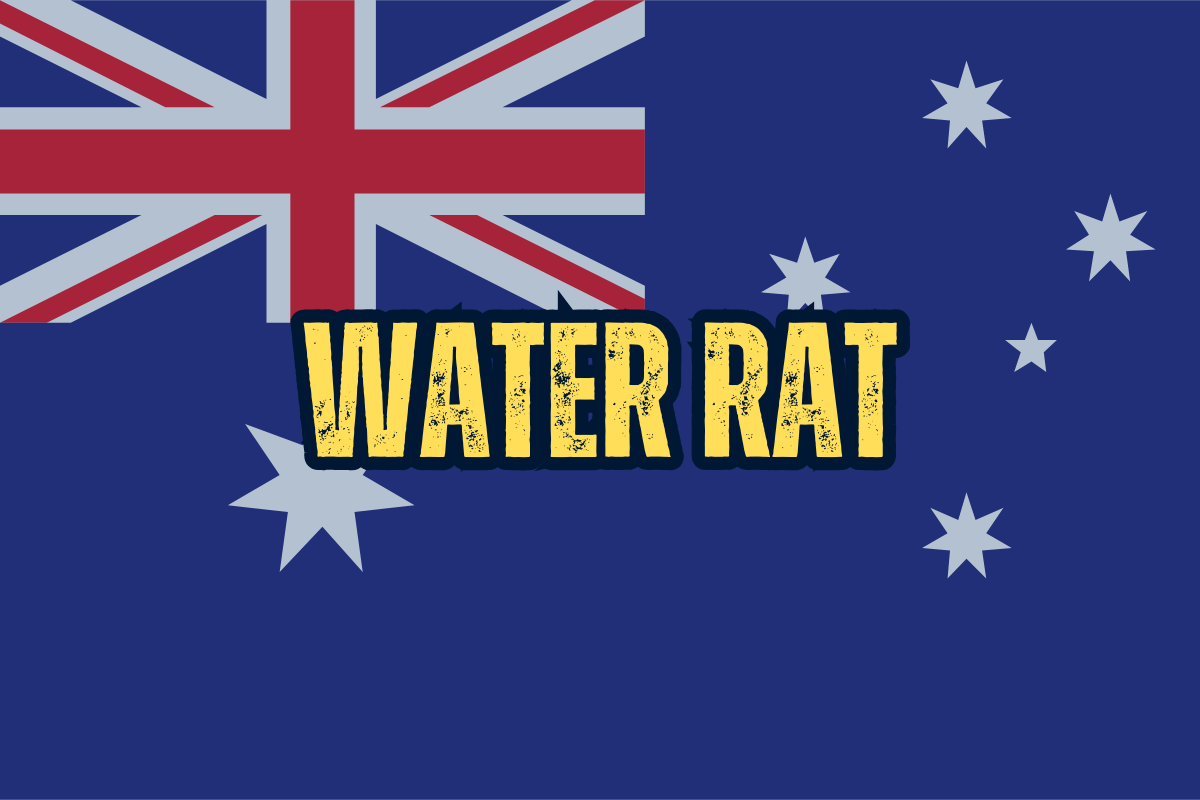
“Water rat” is a slang term used in Australia to refer specifically to the water police.
However, its origins are less flattering—it was initially used to describe criminals who operated near harbors and waterfronts.
Over time, the meaning shifted, and today, it refers to law enforcement officers who patrol Australia’s waterways.
The term likely became more popular due to the Australian TV drama Water Rats, which ran from 1996 to 2001.
The show focused on the Sydney Water Police and helped cement “water rat” as a well-known slang term for officers working in marine law enforcement.
Interestingly, “water rats” are also real animals found in Australia.
The rakali, as they are properly known, are semi-aquatic rodents that live in and around Australian waterways.
While these animals have no actual connection to the police, the name’s association with the water likely contributed to its adoption as a slang term.
Examples in sentences:
- “You’ll need to watch out for the water rats if you’re fishing without a license.”
- “The water rats were patrolling the docks last night.”
- “He got busted by the water rats for speeding in his boat.”
- “There’s no escaping the water rats when you’re up to no good on the river.”
- “Back in the day, ‘water rat’ meant a thief, not a cop!”

